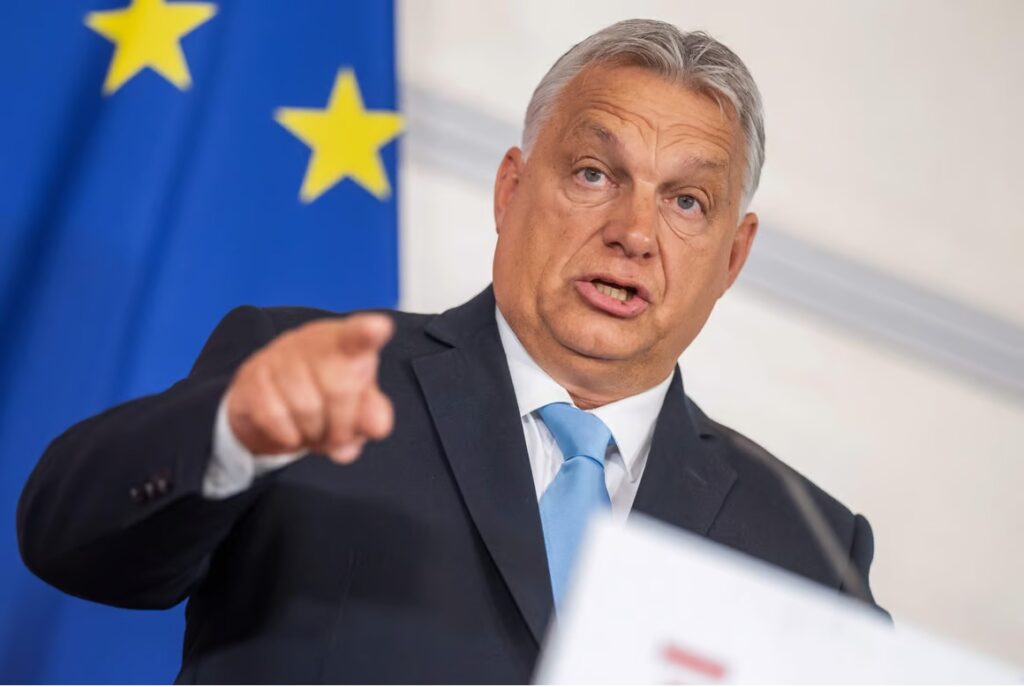|
Getting your Trinity Audio player ready...
|

- Despite allowing Ukraine’s EU membership talks to proceed, Orbán’s veto of the aid package to Ukraine has surprised EU leaders.
- A significant source of friction was Hungary’s reliance on Russian oil, leading to clashes over the EU’s ban on Russian oil imports.
- Orbán’s resistance and the subsequent exemption for Hungary fueled discontent in an already challenging relationship.
The European Union faced a setback as Hungarian Prime Minister Viktor Orbán unexpectedly vetoed a €50 billion aid package for Ukraine, despite expectations that he might oppose talks on Ukraine joining the EU. Orbán’s veto highlights the strained relationship between Hungary and the EU since 2010, marked by power plays, democratic concerns, and controversial laws.
Orbán’s government faced scrutiny over democratic standards, leading to a probe and the freezing of over €20 billion in EU funding. Tensions escalated with Hungary’s anti-LGBTQ+ laws, resulting in legal action and a declaration by the European Parliament that Hungary was no longer a “full democracy.”
A significant source of friction was Hungary’s reliance on Russian oil, leading to clashes over the EU’s ban on Russian oil imports. Orbán’s resistance and the subsequent exemption for Hungary fueled discontent in an already challenging relationship.
Orbán’s attempts to block legislative agreements reflected his bid to reinstate EU funding. The EU’s partial unblocking of €10 billion for Hungary was seen as an effort to ease tensions, but €21 billion remained frozen, influencing Orbán’s decisions.
Despite allowing Ukraine’s EU membership talks to proceed, Orbán’s veto of the aid package to Ukraine surprised EU leaders, who sought solidarity with Ukraine amidst Russia’s military intervention in Ukraine. The EU faces challenges in reaching unanimous decisions, with Orbán’s position deemed disappointing by some leaders.
Taoiseach Leo Varadkar acknowledged Orbán’s strong opposition but commended his decision not to use the veto, recognizing the difficulty it would pose for the EU. Discussions continued into the early hours, and while workarounds were suggested, EU leaders remain optimistic about ongoing accession talks.
Belgian Prime Minister Alexander De Croo viewed the initiation of membership discussions as a strong message to Russian President Vladimir Putin, emphasizing European support for Ukraine. Despite the hurdles, EU leaders aim to reach an agreement in the coming year, maintaining optimism about the accession process.
(Srijan Kumar is currently pursuing a PhD in South Asian studies from Delhi University. He is a writer and a columnist for various digital media houses. Opinions expressed are the author’s own)
